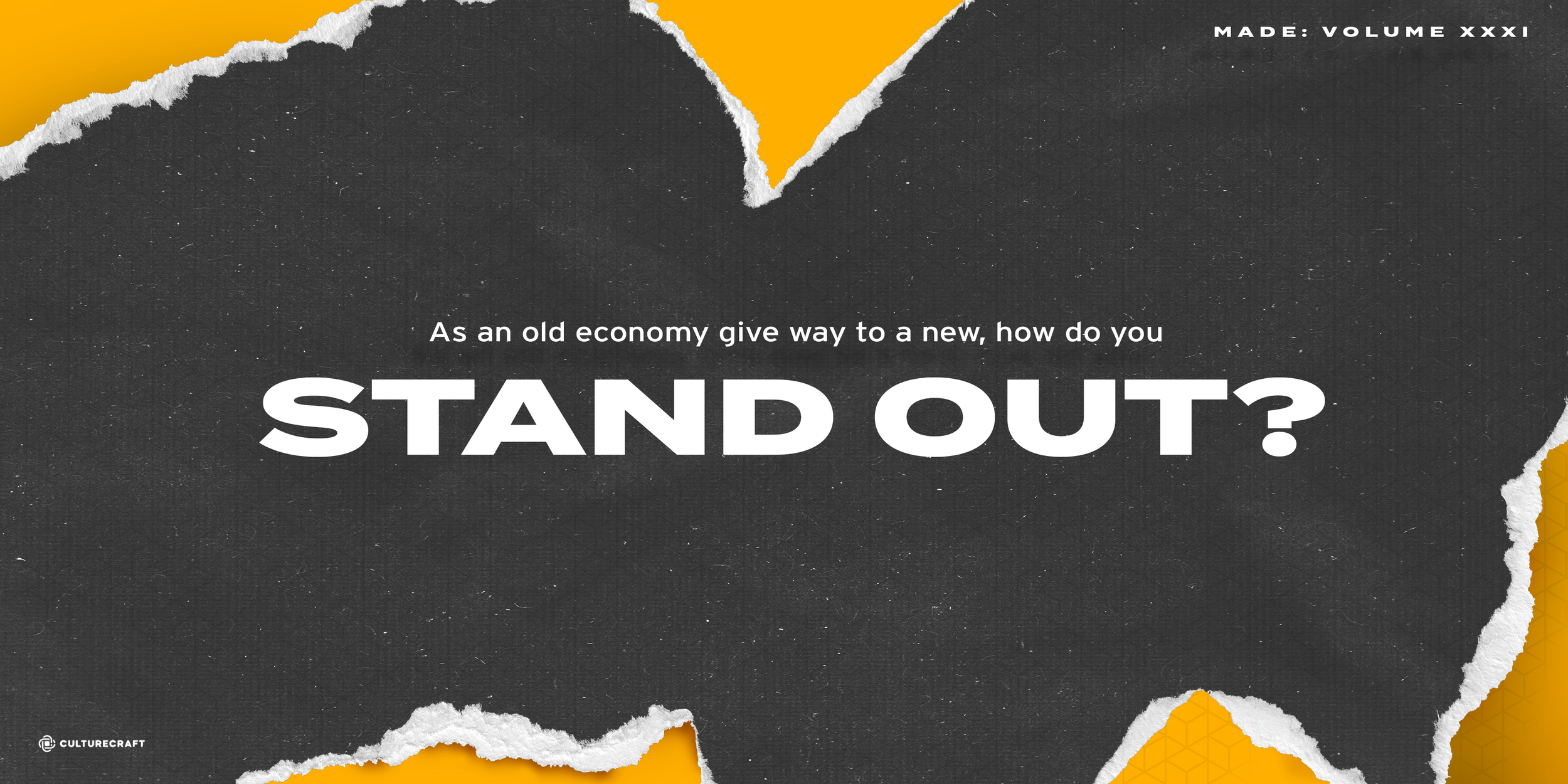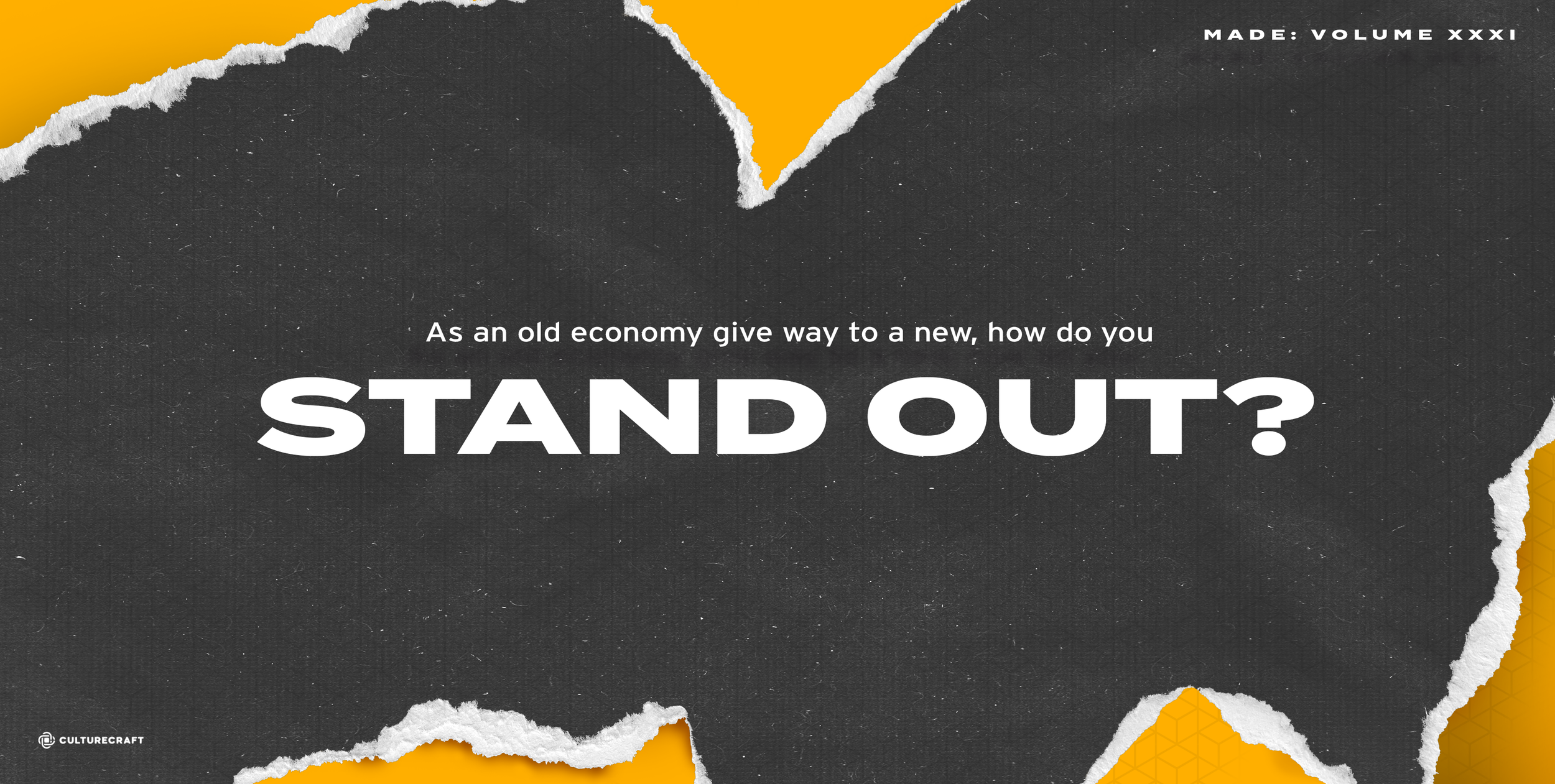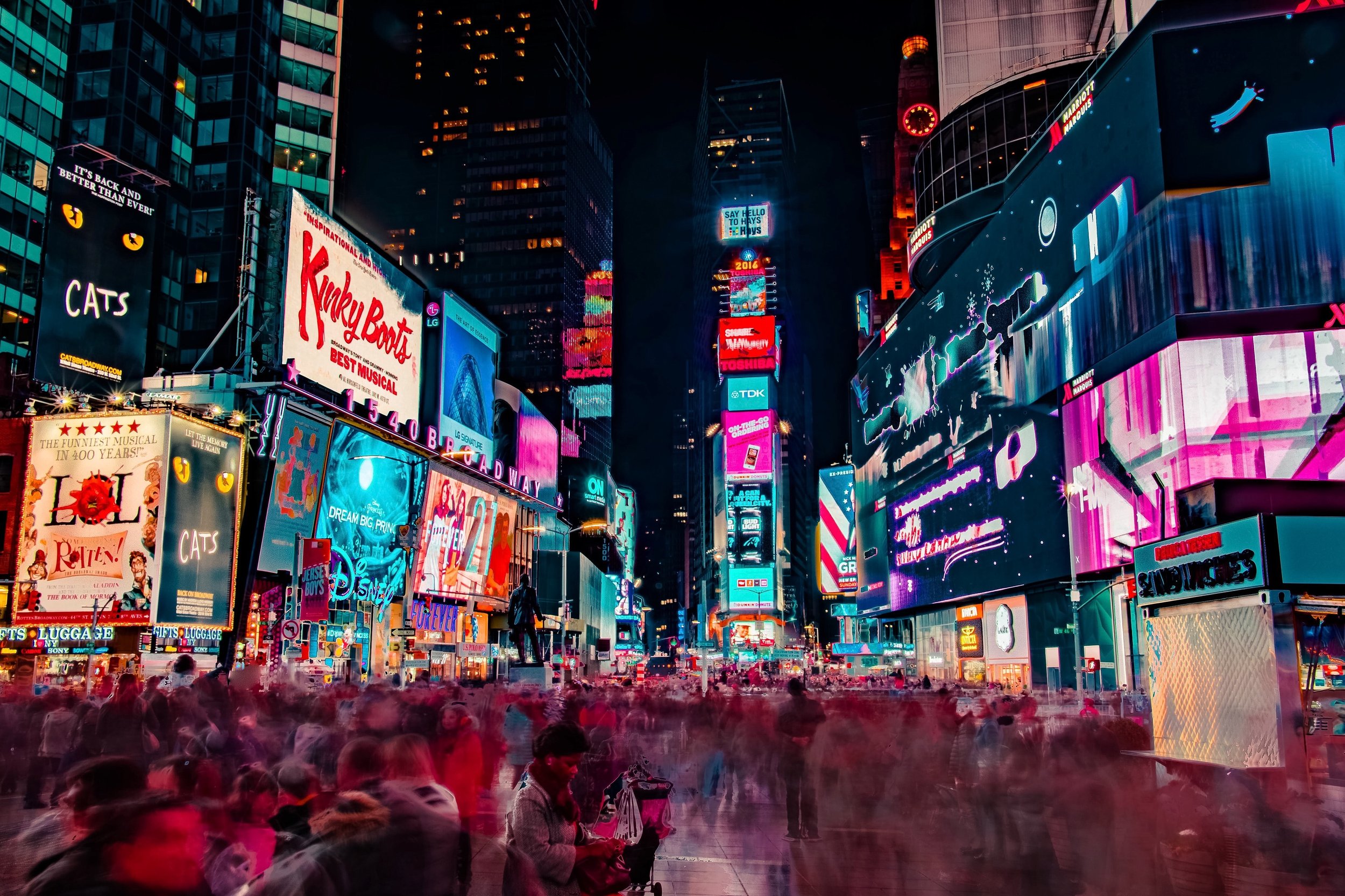How Brands Can Move Past Attention-Getting Regardless Of Their Industry
Back in the good ol’ days, brands attracted attention mostly in physical spaces – Billboards, radio, television, in-print advertising. Those were the staples. Then the internet showed up and suddenly there were inboxes, websites, social media channels, forums, threads – #lookatme ad space EVERYWHERE.
Regardless of whether it was an established brand or an emerging one, there were now countless avenues companies could use to bombard potential customers for attention. Who needed to be real when they could be everywhere? And so, for two decades, many brands did just that, sacrificing dollars and integrity for eyeballs and clicks.
And then the bottom dropped out. Attribution got canceled, the funnels went dark, and the fantasy of tracking prospective customers into endless selling corners died nearly overnight.
Turns out it’s hard selling to a customer you can’t see and who you aren’t sure is seeing you.
The economy, as well as the rules, changed.
BRANDS IN THE EMERGING ECONOMY
In the post-attribution economy, consumers are cynical enough to see through even the cleverest marketing tactics. Any brand move that even hints at attention-seeking rather than authenticity, is dismissed along with the brand itself.
Moreover, it’s not just that consumers are savvy – they’re also exhausted. When everything and everyone clamors for your attention, you start giving it out less. Too many brands read this as apathy and double down on their ad efforts, creating even more exhaustion.
But consumers aren’t apathetic. They’re tired. They’ve stopped paying attention so they can recoup their sanity.
When brands realize the savvy nature of the consumer, and take stock of their exhaustion, a natural conclusion should arise (but rarely does): mere marketing repels more people than it gains. So, if the goal of a brand is no longer attention-gaining, what should they be focused on?
The emerging economy requires that brands shift focus to building trust, earning credibility, and fostering engagement with a customer who feels beloved by them.
To begin accomplishing that, brands should adopt a concept we call “Working In Public”. Brands that work in public, place a high premium on transparency, authenticity, and availability to their customers. This in turn creates that surplus of trust.
And make no mistake: for brands to survive in the emerging economy, they must win a customer’s attention with trust. Anything less leaves customers adrift in a sea of forever skepticism that clouds future interaction with the brand.
How a brand like yours achieves this trust will require some introspection and knowing what kind of industry you’re a part of and what your role is in that industry. For us, it breaks down like this…
INDUSTRIES IN THE EMERGING ECONOMY
Legacy Industries: These industries are established, recognized, and show proven demand. Think automobiles, financial services, medicine, fashion, and so on. While their established status gives them clout, this permanence can also be their undoing – especially in the emerging economy, as many legacy industries are now primed for decline.
For example, the emerging economy is skyrocketing demand for electric vehicles (EVs). 160% growth in the first half of 2021 alone. The legacy car industry is scrambling with new electric logos (GM logo update 2021), but very few electric cars to show for it, ceding the field to Tesla and Rivian. Lots of promises and few deliveries—the literal antithesis of working in public.
If you’re in a legacy industry, then the goal in the emerging economy is to become what refer to as the Iconoclast: An expert of the status quo, but deeply committed to defying it – representing the industry, while helping to break it.
Iconoclasts within legacy industries lead with empathy, focusing on a hyper-specific customer and producing a product\experience that defies genre convention.
A great Iconoclast worth watching: Lush Cosmetics. Lush’s decision to quit social media back in November was driven by the company’s longstanding care for their customers. But the transparency and vulnerability they displayed during the decision was in keeping with the brand’s commitment to working in public. That’s the move of an Iconoclast.
Emerging Industries: Emerging industries are new, fast-moving, and generally only recognized by early adopters. Consider Cryptocurrencies. Are they popular talking points? Yes. Do most consumers and investors have any idea how they actually work? Not really. (This again is the literal antithesis to trust-generative Working In Public).
Emerging industries often flaunt themselves as guarantees of the future – which is fine until they turn out to also be fraught with grift, false promises, giant bubbles, and strategic errors.
Scariest of all, most companies in emerging industries won’t survive the emergence. And that’s not just because doing a new thing is hard. It’s because many emerging industry brands don’t know how to move past the initial round of early adopters, and capture that early majority, or even the late majority (where all the money and sticking-around power is).
Brands in emerging industries should be working toward status as Stewards. Stewards look beyond the early adopter and act as compassionate bridge-builders to not-yet-convinced consumers. Stewards also expand the understanding of their industry, building primarily for the early majority, and displaying an unparalleled aptitude for knowing the needs of consumers and meeting them with their industry and products.
Like Dutchie, the scrappy upstart from Bend, Oregon that helps Cannabis dispensaries manage online orders all across the country. Along with a great strategy and company culture, Dutchie has shown true belief in their industry, investing in education about the benefits of cannabis, as well as lobbying for greater legalization alongside regulatory oversight. Though only four years old, Dutchie has spent those years constantly working in public, stewarding trust from both their industry and the industry’s customers as well.
2019 WAS 20 YEARS AGO…
The truth is, the emerging economy is already here. And whether you’re a brand in a legacy industry or one in an emerging industry, there’s no time to lose.
According to an Alix Report, 94% of CEOs see the need to build a new business model in the next three years, due to the rapid changes in the economy and evolving customer intelligence and preference.
94% is a staggering number (and it probably includes yours).
Working In Public, and the need for Iconoclasts and Stewards within industries is just the start of the conversation. That’s why at CultureCraft, our founder Nick Richstmeier will be hosting a discussion on January 18th entitled 2019 Was 20 Years Ago.
Because friends, it’s moving fast out there. Getting your brand up to speed with the emerging economy and giving leaders like you actionable insight to use right now is one of our biggest goals for 2022.
We hope you’ll join us in helping to create a better economic future – for brands, and for their customers. You can find more info and register for 2019 Was 20 Years Ago, by following this link.
We’ll see you there.




